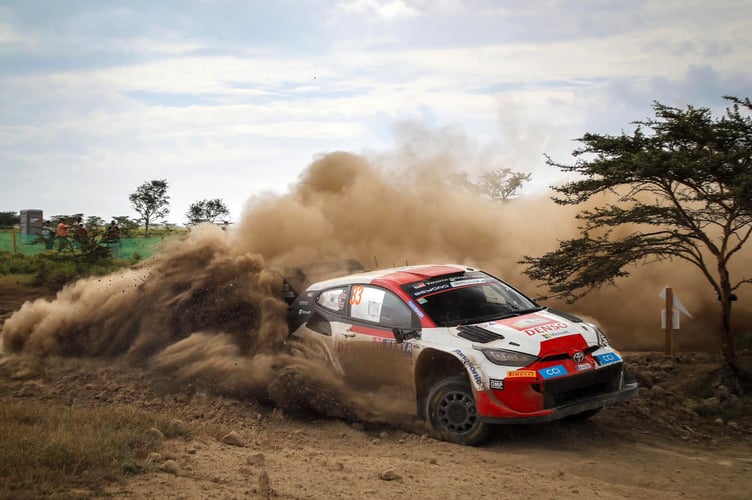ELFYN Evans is excited about taking on the legendary Safari Rally, an event he describes as the most extreme in the World Rally Championship.
His Toyota Gazoo Racing team is targeting more success in the only African round of the season, held this year on 28-31 March.
The Dinas Mawddwy driver said: “The Safari Rally is the most extreme event on the calendar so it’s always an exciting one to go to.

“It’s more about the adventure than the pure thrill of driving but I’m looking forward to it as always.
“We’ve made a decent start to the year, taking good points from the first two rounds, but the Safari can be a bit of a lottery.
“We have to find that balance between pushing and looking after the car and see if we can be at the finish with good points, but that’s easier said than done.
“We’ve seen before that when it rains it can be very difficult, and we’re potentially looking at much more difficult conditions for a greater proportion of the rally and that could make things quite challenging.”
Since returning to the FIA World Rally Championship in 2021, the Safari has resumed its reputation as one of motorsport’s toughest challenges.
It’s a challenge that TGR-WRT has risen to with three consecutive victories, extending Toyota’s record tally of wins on the event to 11. That includes a historic pair of 1-2-3-4 results in the past two years.
This year, the team brings another strong line-up featuring three drivers who each have multiple Safari podiums to their name.
Double world champion Kalle Rovanperä won the event in 2022 and finished a close second last year, while Elfyn Evans has the chance to add his name to the winners’ list after finishing second and third in the last two editions.
Kenya has been a happy hunting ground for Takamoto Katsuta too, as the rally where he achieved his first two WRC podium finishes in 2021 and 2022.
For 2024, the Safari returns to a more traditional date earlier in the year, having been held in June since its WRC comeback.
This move could coincide with greater rainfall, with the potential to turn usually dry and dusty tracks into deep mud: conditions that have previously been responsible for some of the most iconic images in WRC history.
A change to the regulations means teams are this year permitted to fit Rally1 cars with snorkel systems – another notable feature of the Safari Rally in the past – to help them navigate deep water or soft sand and prevent engines being starved of air.
For the first gravel rally of the season, TGR-WRT will also introduce an updated suspension system aimed at improving performance and reliability.





Comments
This article has no comments yet. Be the first to leave a comment.